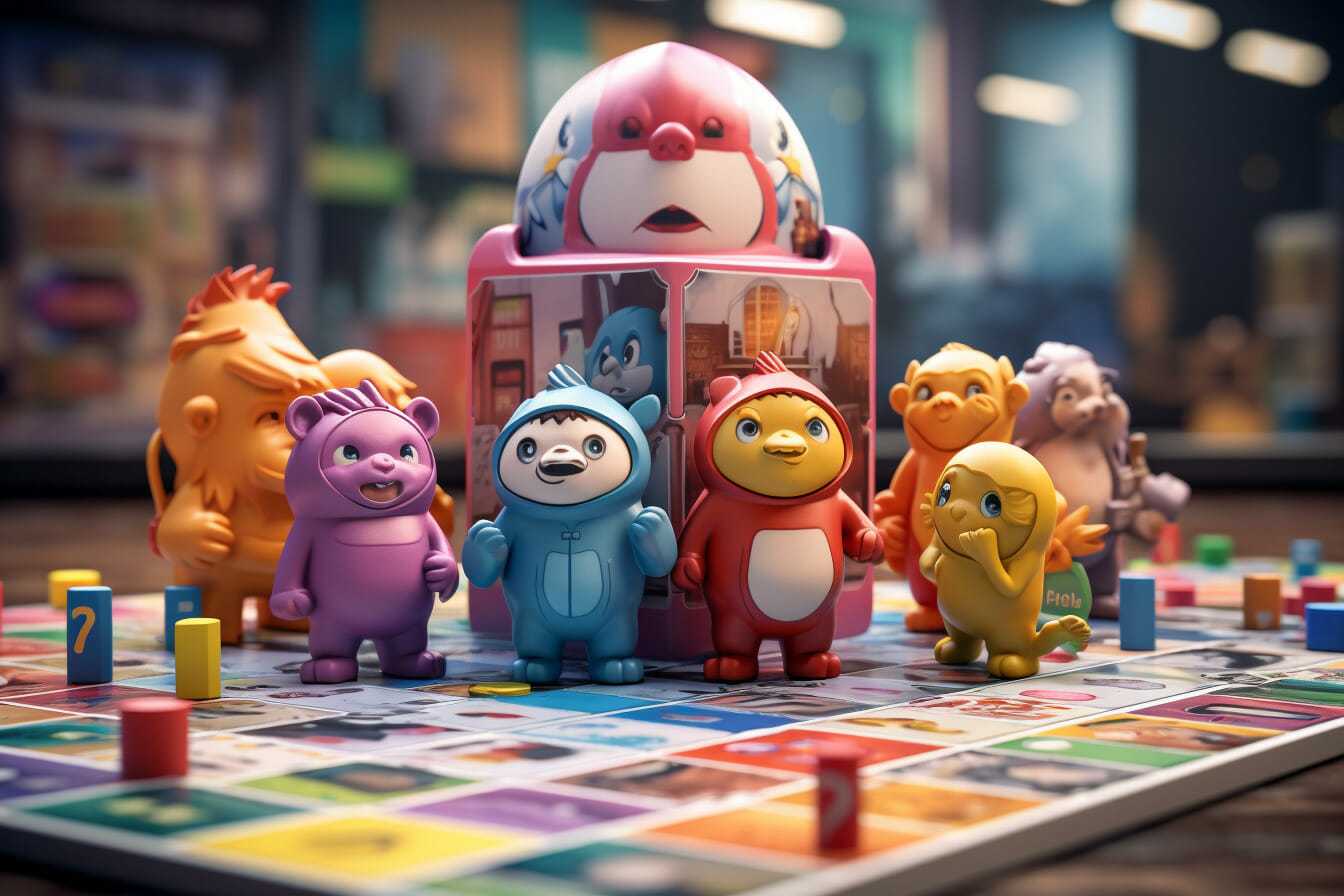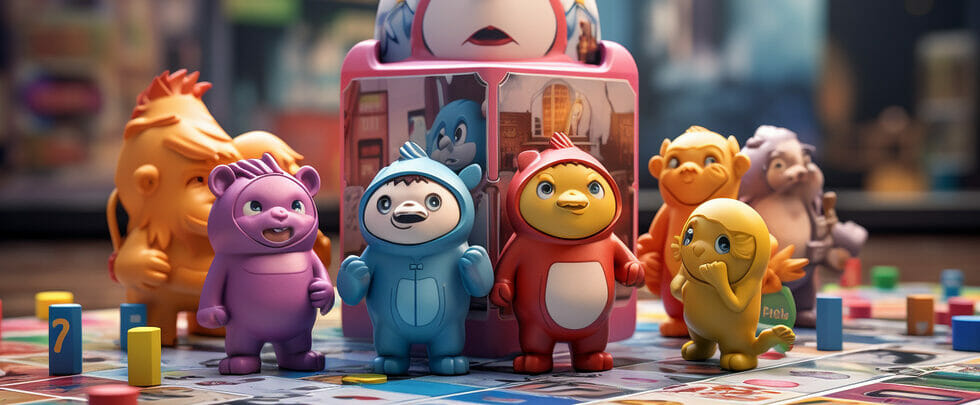Defining Brand Personality: A Comprehensive Overview
Ever wondered what makes a brand so memorable? It’s all about brand personality! This is the magic that breathes life into a simple logo. It’s what makes you choose one product over another.
In this article, you’ll learn about brand personality, why it’s essential in marketing, and how to develop your own. You’ll even get to dive into some successful case studies.
So, let’s uncover the secrets behind those brands you can’t forget.
Table of Contents
Defining the Term ‘Brand Personality

Before we dive further, let’s take a moment to define what we’re talking about when we say ‘brand personality.’
Essentially, it’s the human traits or characteristics associated with your brand. Imagine your brand as a person – how would you describe their personality? Are they fun, serious, innovative, trustworthy, or maybe rebellious? That’s your brand personality.
It’s how you communicate your brand’s core values and beliefs through actions and interactions. It’s what sets you apart from your competitors. It’s what makes your customers feel connected and loyal to your brand.
The Importance of Brand Personality in Marketing
You’ll find that understanding the importance of brand personality in marketing can give you a significant edge in today’s competitive business environment. An appealing brand personality can set your product apart, making it more memorable and relatable to consumers.
It’s not just about selling a product; it’s about creating an emotional connection with your audience. This connection can increase loyalty, trust, and, ultimately, sales. You’ll see that brands with strong personalities often have a devoted customer base.
In contrast, those without an evident personality can struggle to engage consumers. So, when crafting your marketing strategies, don’t overlook the importance of brand personality. It’s a powerful tool that can significantly boost your business.
Factors That Shape a Brand’s Personality

When shaping your brand’s personality, it’s essential to consider several key factors.
First, consider your target audience. Your brand’s personality should resonate with them and reflect their values.
Secondly, your product or service plays a vital role. It should align with the personality you’re trying to project. For instance, a luxury brand can’t have a casual, laid-back personality.
Thirdly, your brand’s culture and values are instrumental. They should be reflected in your brand’s personality.
Lastly, remember that your brand’s personality should be unique. It needs to stand out from the competition. Consistency is also crucial. Once you’ve established a brand personality, you must consistently maintain it in all your communications.
Case Studies: Successful Implementation of Brand Personality
Let’s dive into some case studies that showcase how successful brands have effectively implemented brand personality.
Firstly, Apple Inc. is a prime example. They’ve built a loyal customer base by consistently embodying an innovative and cutting-edge personality. Its sleek product design, revolutionary technology, and carefully crafted marketing campaigns reflect the brand’s distinct personality.
Nike is another great example. They’ve cultivated a dynamic, bold, and inspirational brand personality. Their ‘Just Do It’ slogan perfectly encapsulates this spirit. Nike’s unique identity resonates with its excellent target audience, contributing to its success.
Lastly, Starbucks has created a warm, friendly, and welcoming personality. Their cafes are designed as a ‘third place’ between work and home, offering a comfortable and inviting atmosphere. This strong brand personality has significantly enhanced their customer loyalty and brand value.
How to Develop and Maintain Your Brand Personality

You need a clear vision and consistent message to create and sustain your brand personality. You can start by defining your brand’s core values, mission, and unique selling points. This is your brand’s ‘DNA,’ which sets you apart. It’s not just about the products you sell but the emotions you evoke and how your audience perceives you.
Next, communicate these elements across all marketing channels. Be consistent. Your tone, language, and visual elements must reflect your brand personality. If you’re fun and quirky, let it shine through your content.
Remember, it’s about building relationships. Engage with your audience and show them the human side of your brand. Be authentic, be you.
Lastly, review and refine. Your brand personality isn’t set in stone. It can evolve, just like you.
Frequently Asked Questions
How can I create a brand personality?
To create a brand personality, you must define your brand’s values, mission, and target audience. You can also use brand archetypes or personality traits to guide the development of your brand’s personality.
What are some examples of brand personalities?
Some examples of brand personalities include Nike’s energetic and empowering character, Apple’s innovative and sleek personality, and Coca-Cola’s friendly and joyful personality.
What is the brand personality framework?
The brand personality framework is a tool used to define and assess a brand’s personality. It often consists of a set of dimensions or traits that are used to describe the brand’s personality.
What is brand identity?
Brand identity refers to the visual and verbal elements representing a brand’s colors, such as its logo, typography, and brand guidelines. It helps to create a recognizable and cohesive brand image.
What is brand loyalty?
Brand loyalty refers to consumers’ level of attachment and commitment towards a particular brand. It is often a result of positive brand experiences and a strong brand personality.
What are the dimensions of brand personality?
The dimensions of brand personality are a set of characteristics or traits used to describe a brand’s personality. Some standard sizes include sincerity, excitement, competence, sophistication, and ruggedness.
How does brand personality impact brand equity?
Brand personality can have a significant impact on brand equity. A strong and consistent character can enhance brand equity by making the brand more memorable, differentiating it from competitors, and building emotional connections with consumers.
What is brand personality?
Brand personality refers to the human-like qualities and characteristics associated with a brand. The set of traits and values defines how its customers and target audience perceive a brand.
Why is brand personality important?
Brand personality is important because it helps to differentiate a brand from its competitors. It creates a strong brand identity and emotional connection with customers. Brand personality also helps to build brand loyalty and influence customer behavior.
How do you define your brand personality?
Defining your brand personality involves identifying the unique traits and values that your brand represents. It requires understanding your target audience, the brand’s values, and the emotions and characteristics you want your brand to evoke.
What are some brand personality traits?
Some common brand personality traits include sincerity, excitement, competence, sophistication, ruggedness, and friendliness. These traits help to give a brand a distinct personality and differentiate it from others.
Can you provide some brand personality examples?
Sure! Examples of brands with distinct personalities include Nike (bold, inspirational, and empowering), Apple (innovative, sleek, and user-friendly), and Coca-Cola (joyful, nostalgic, and inclusive).
How can I develop my brand personality?
To develop your brand personality, identify your brand’s core values and target audience. Then, align your brand’s visual elements, messaging, and customer interactions with these values to create a consistent and authentic brand personality.
How can I implement my brand personality?
You can implement your brand personality by consistently incorporating its traits and values into all aspects of your brand. This includes your brand messaging, visual identity, product design, customer service, and marketing campaigns.
What are brand archetypes?
Brand archetypes are the twelve universal character types commonly used to define a brand’s personality. These archetypes, such as the Hero, the Rebel, and the Sage, help to create a consistent and relatable brand identity.
Conclusion
So, you’ve seen how vital brand personality is. It’s not just about logos or slogans but the values and promises you offer your audience. It shapes perceptions and drives customer loyalty.
From Apple’s innovation to Nike’s inspiration, successful brands excel in this aspect. You can start defining your brand personality now, ensuring it’s authentic, consistent, and resonates with your target market.
Remember, your brand personality can be your competitive edge.













